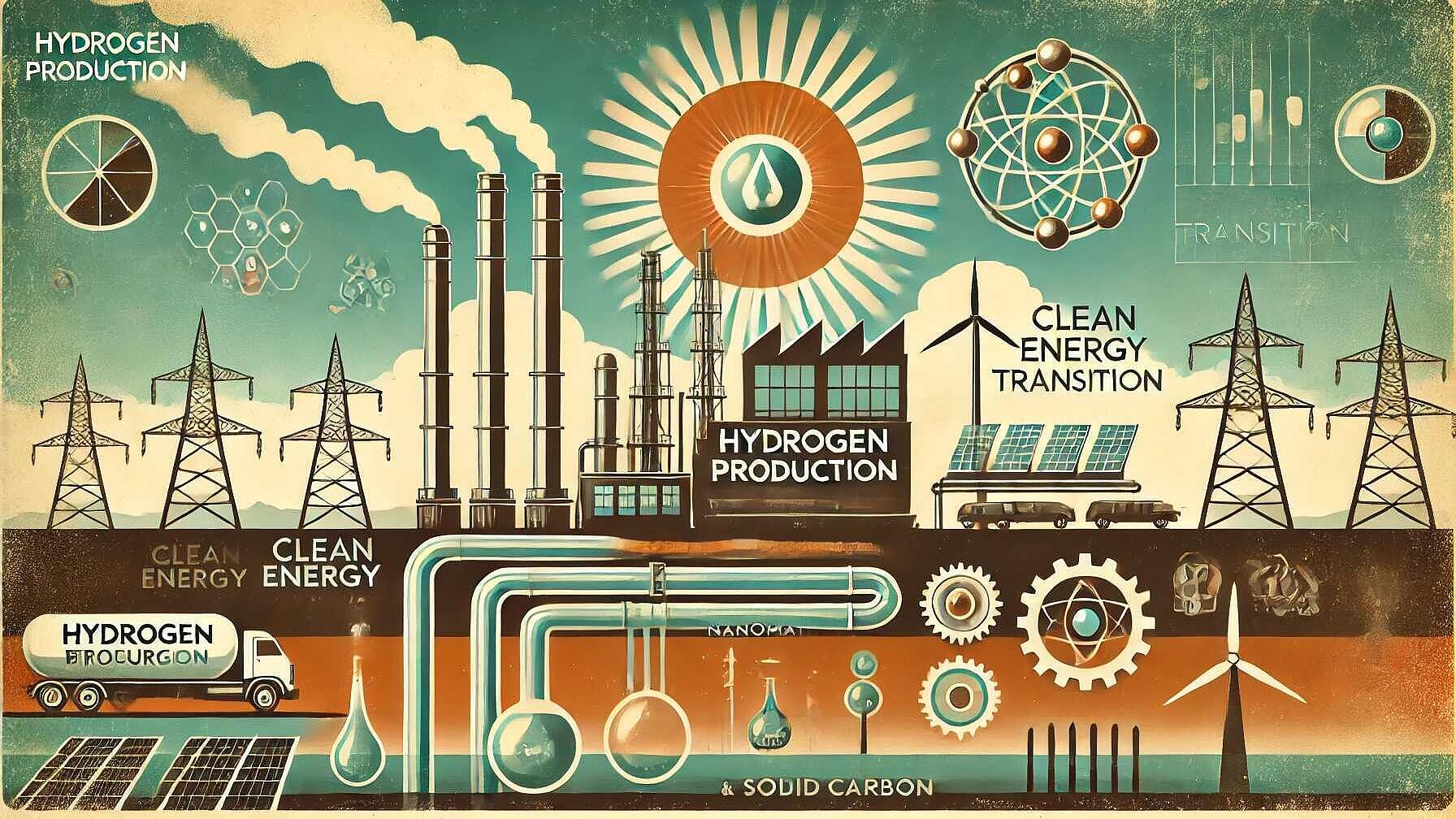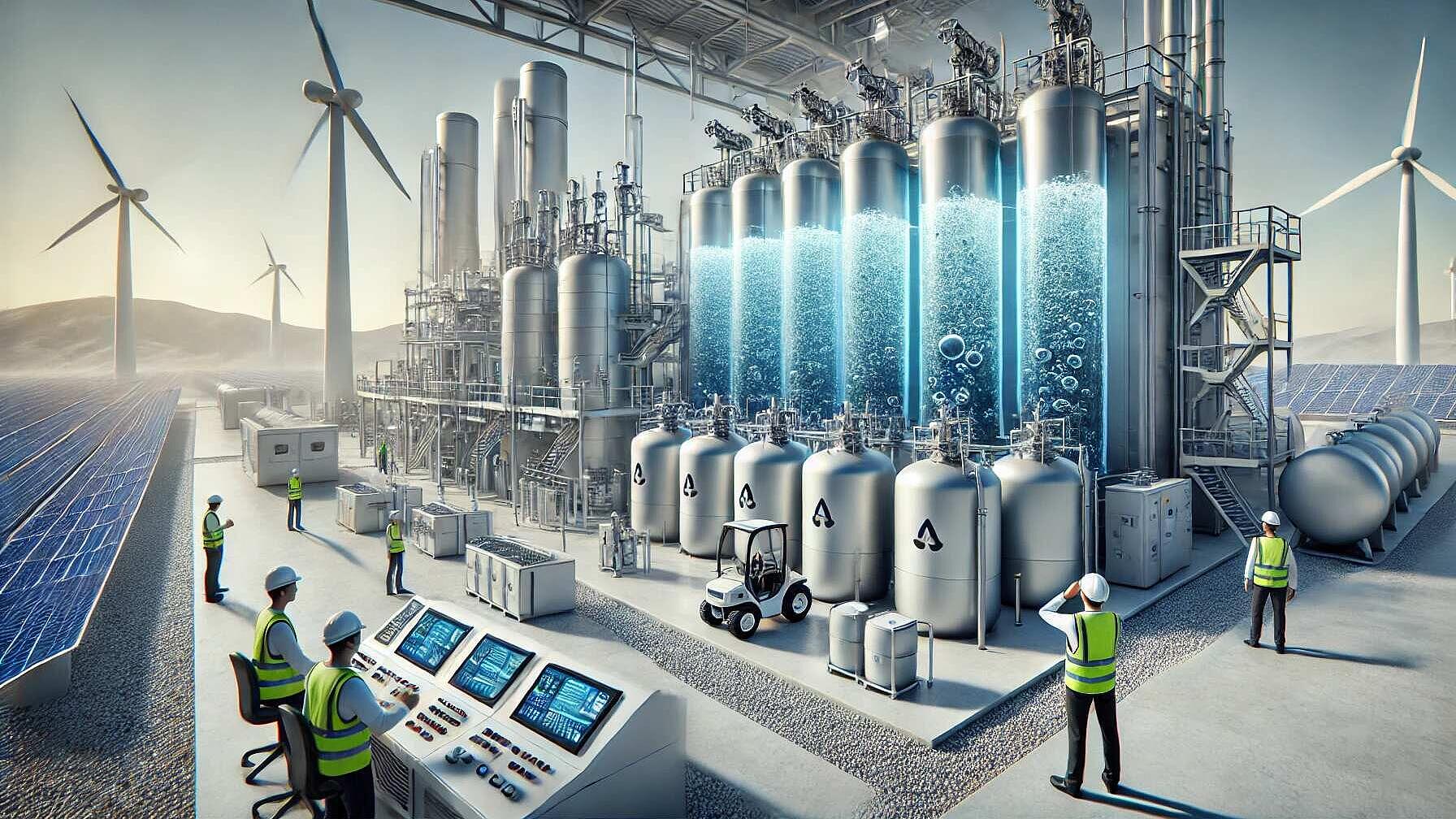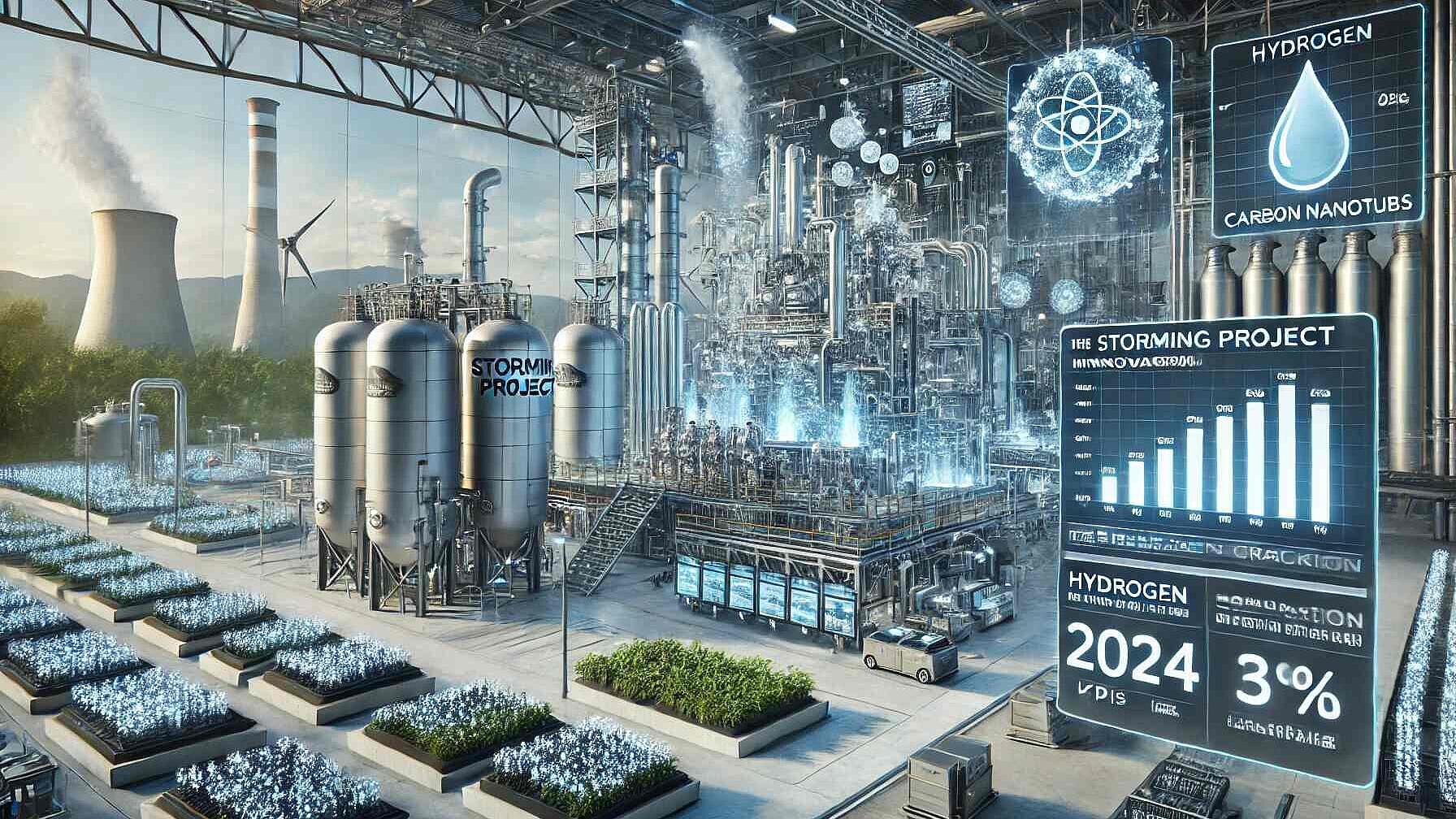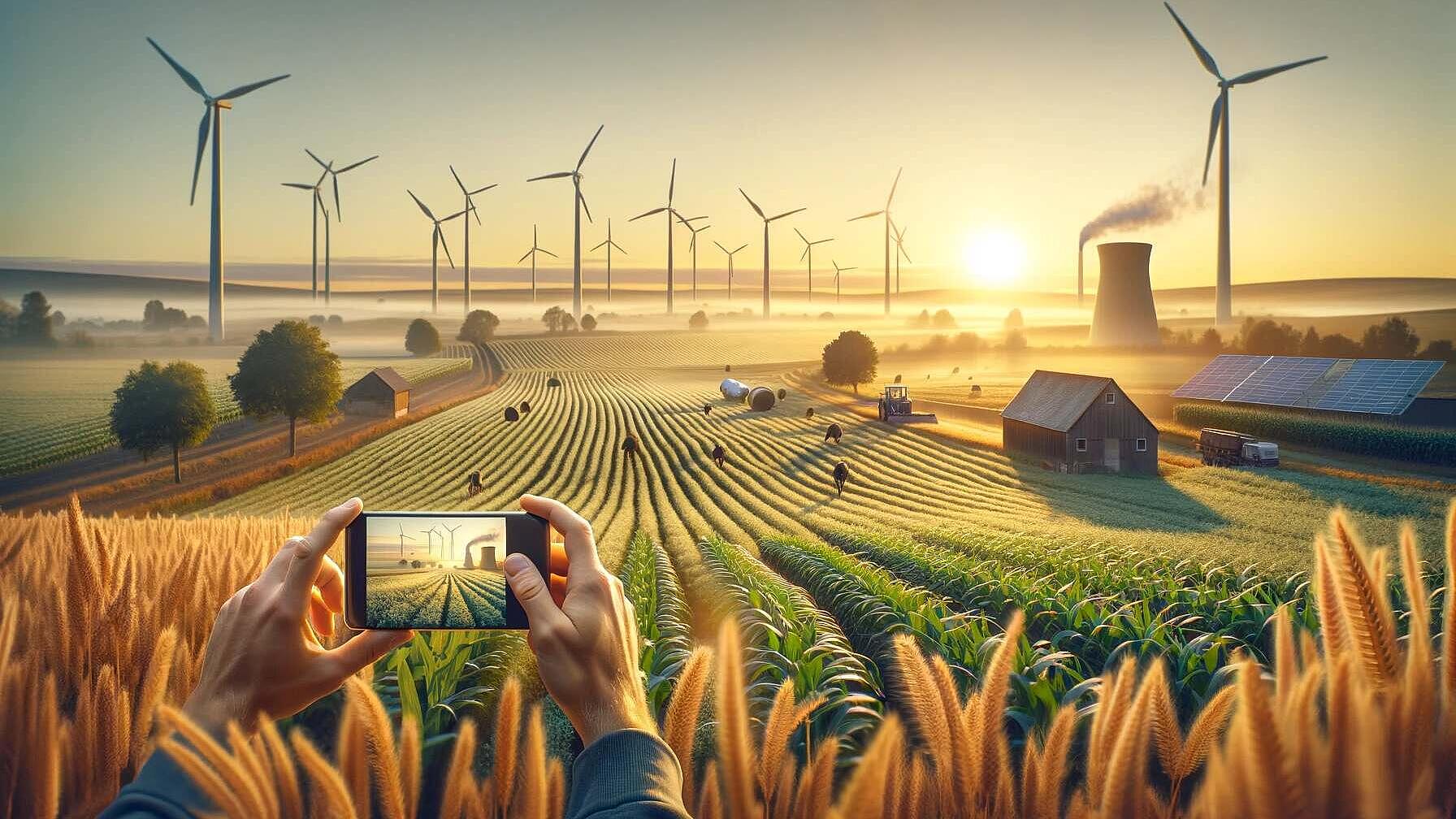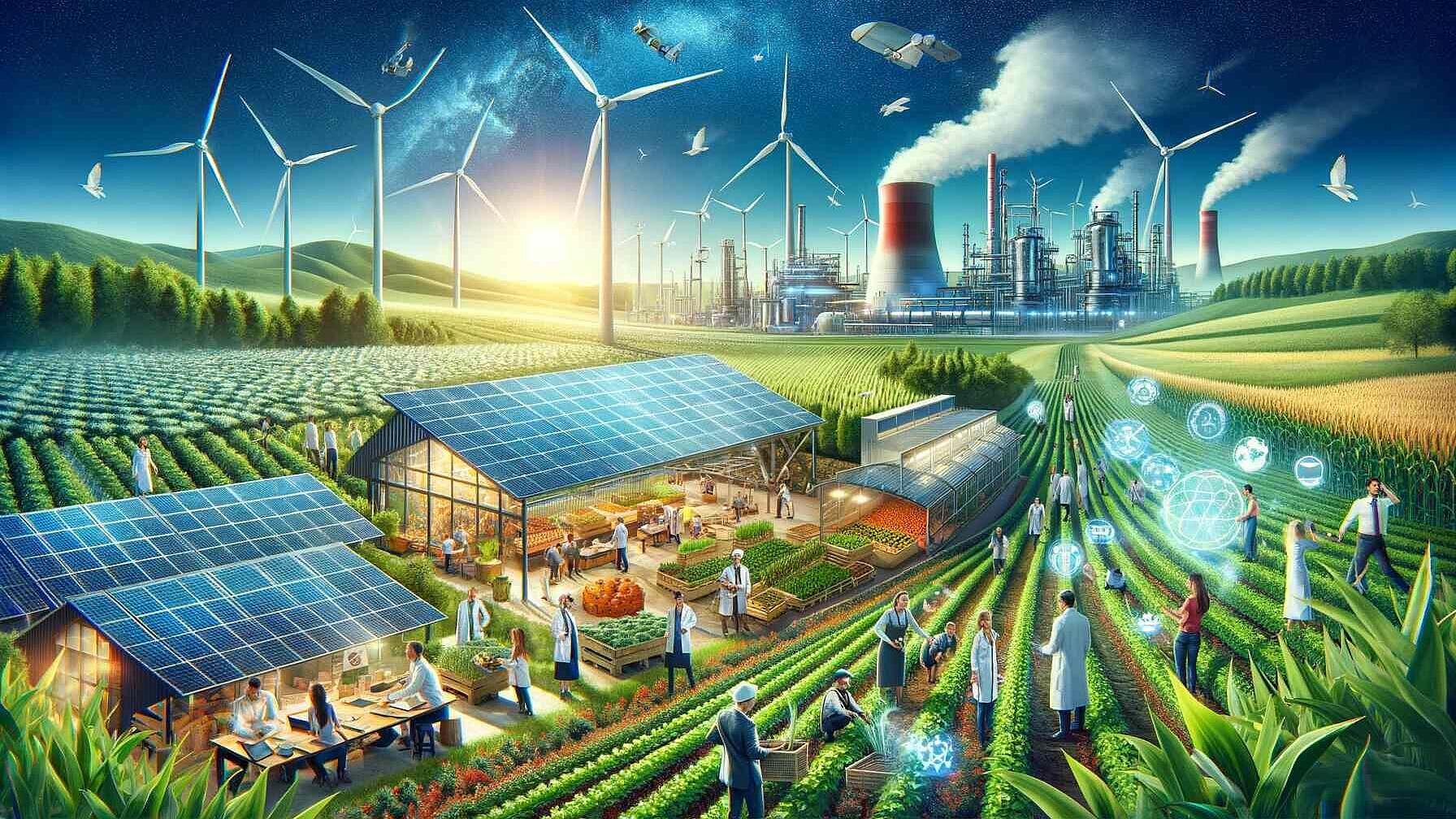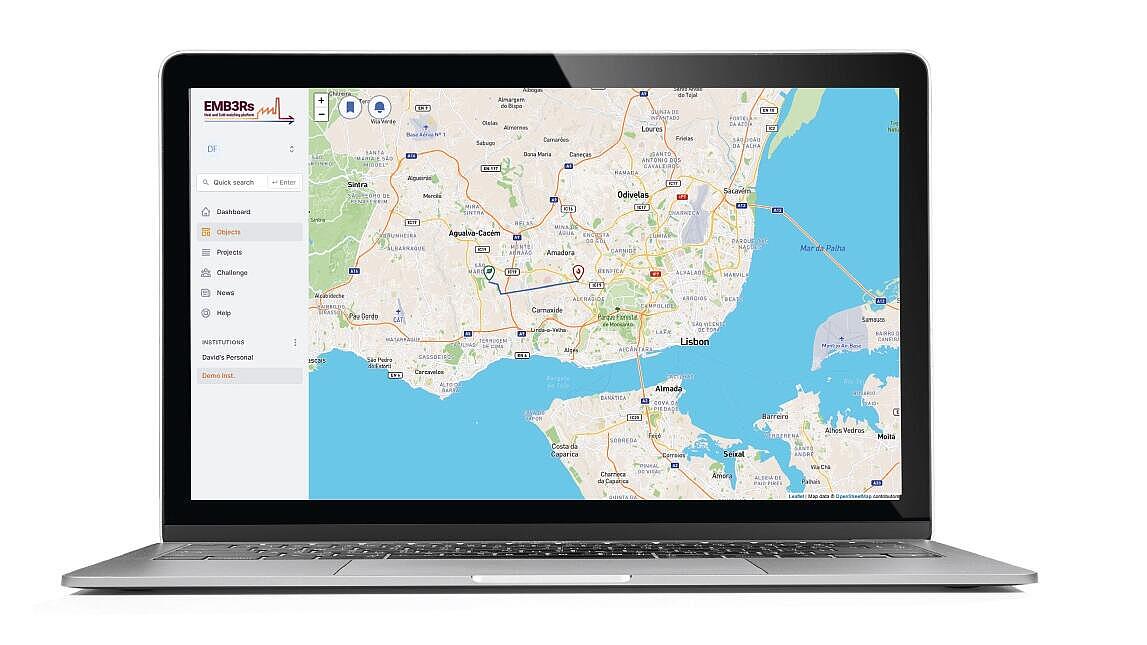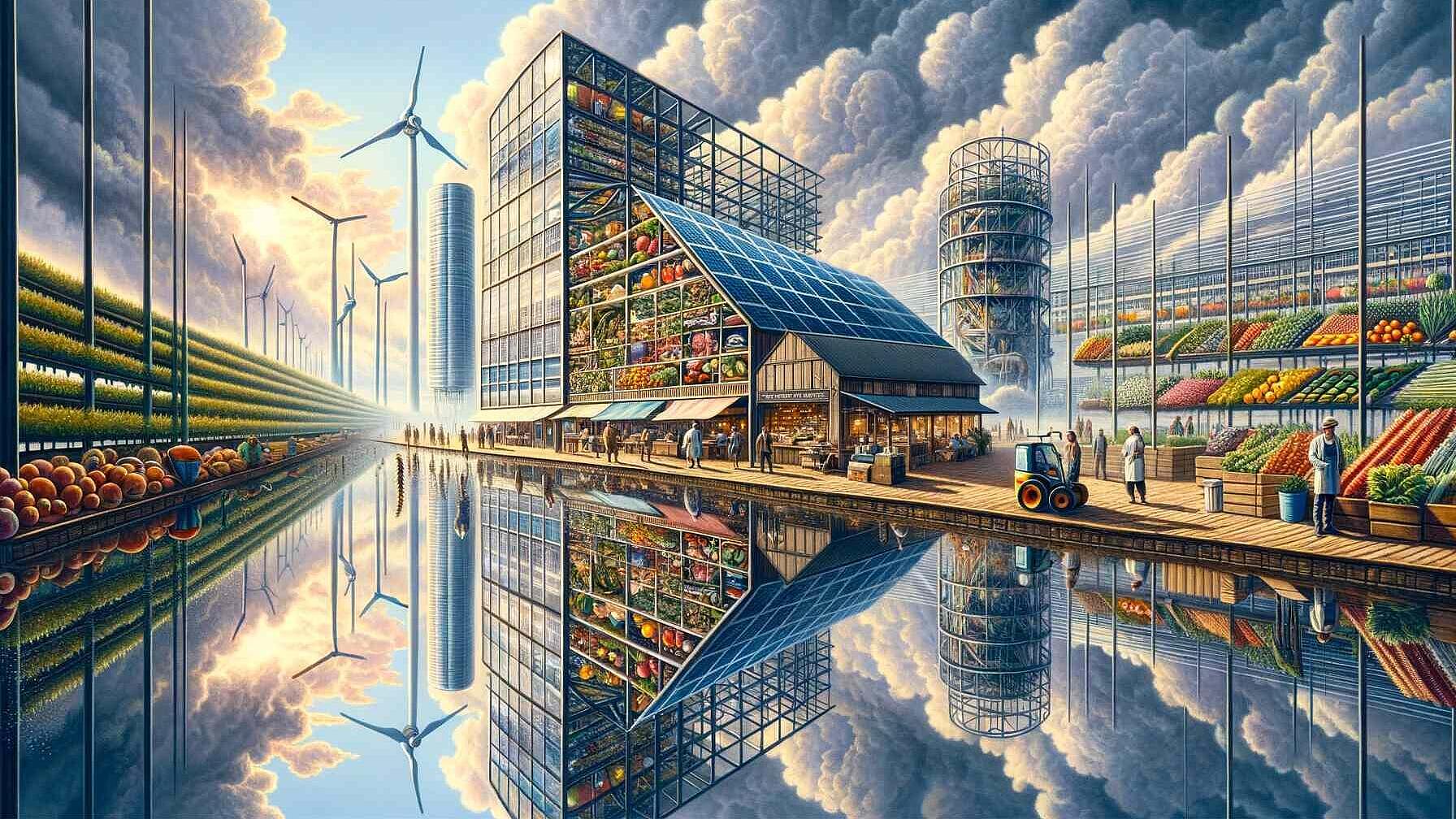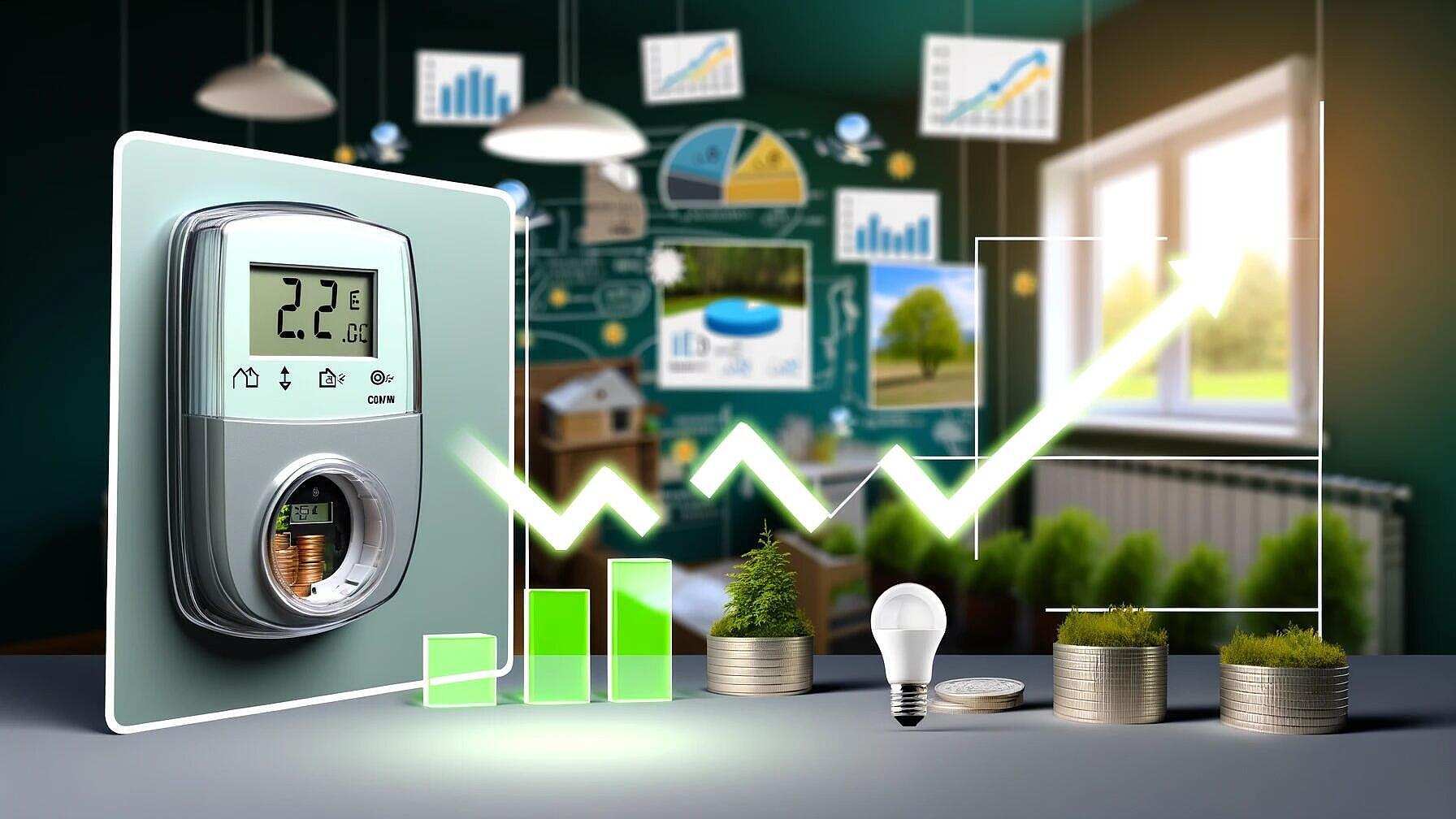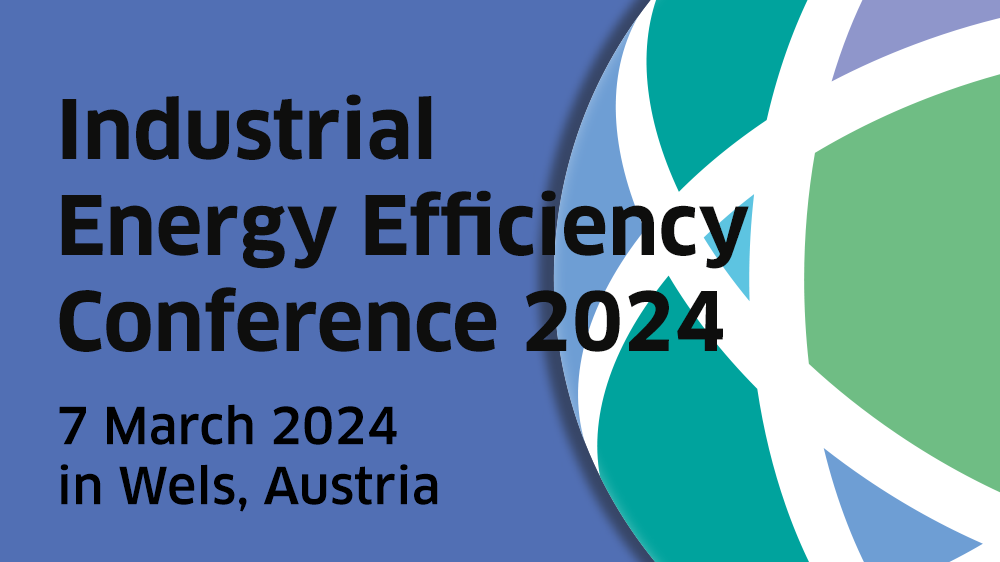 Renewable Energy
Renewable EnergyRenewable Energy
The paper discusses the shift toward cleaner energy with hydrogen as a key clean energy component. Hydrogen's current annual production is significant, but the prevalent production method, steam methane reforming (SMR), emits large amounts of CO2. Catalytic methane decomposition (CMD) is presented as a cleaner alternative, producing hydrogen and solid carbon without direct CO2 emissions, requiring less energy than SMR and circumventing certain environmental costs. The paper identifies iron (Fe)-based catalysts as promising for CMD due to their efficiency and cost-effectiveness. These catalysts work at higher temperatures and have been particularly effective when fused with alumina (Fe-Al2O3), exhibiting increased performance and longevity. This approach not only yields hydrogen but also valuable carbon nanomaterials that have applications in advanced battery technologies. The European Union's STORMING project illustrates how combining hydrogen production with materials science can create integrated energy solutions. These technological advancements could have a wider impact on energy storage, electronics, and provide new job opportunities in energy and materials science sectors. The paper suggests that CMD's environmental benefits are significant, reducing greenhouse gases and contributing to a circular economy. It invites students and young professionals to get involved in hydrogen technology and CMD through education and participation in research projects. Entrepreneurial prospects in commercializing carbon nanomaterials are discussed, pointing to clean energy as a realm of vast potential for the future.
Read Full articleHydrogen's Role in the Future of Clean Energy: Innovations and Opportunities
Global hydrogen demand grew marginally, with most still from traditional sources. Shift to low-emissions hydrogen is crucial, underpinned by technology and investment growth. Challenges persist in financing, regulation, and infrastructure, but opportunities for innovation and development in various sectors remain, with significant implications for the future energy landscape.
Read Full articleIntegrating Innovation: The Role of STORMING Project in Aligning with the Hydrogen Pathways Report 2024
The STORMING project innovates in methane cracking for CO₂-free hydrogen and carbon nanotubes production, aligning with Hydrogen Europe's pathways for a sustainable energy transition and offering economic and environmental benefits. Challenges remain in scaling and integration into industries.
Read Full articleFeeding the Future: Navigating Europe's Journey to Sustainability
The "From Farm to Fork" strategy under the European Green Deal sets ambitious targets like reducing pesticides, increasing organic farming, and halving food waste by 2030. It emphasizes environmental health and economic benefits, advocating technological innovation and stronger global partnerships for sustainable food systems.
Read Full articleThe Great EENOVA Adventure: Benny the Baker's Wacky Quest for Energy-Smart Snacks!
FUN STORY: The EENOVA project enhanced energy efficiency in Foodville's food processing industry through whimsical roundtables, innovative audits, practical solutions, policy recommendations, celebratory events, skill training, and humorous communication strategies, leaving a sustainable and competitive legacy.
Read Full articleTransforming the Global Food Sector: A Path to Energy-Smart Practices
The FAO 2011 paper advocates for an energy-smart food system to enhance sustainability, reduce GHG emissions, and improve food security by boosting energy efficiency and integrating renewable energies across the food supply chain, while providing policy recommendations and calling for international cooperation.
Read Full articleAn Uber for heat: How a new platform can help industries reuse excess heat and meet decarbonisation goals
Mafalda Silva is a Senior Researcher at the Institute of Science and Innovation in Mechanical and Industrial Engineering. She has participated and managed multiple projects concerning energy planning and sustainability. Silva has developed a heat and cold matching platform that determines the costs and benefits related to excess heat utilization routes for the industry and end users.
Read Full articleUnveiling the Energy Footprint of Europe's Food Sector
The EU food sector is a major energy consumer with significant potential for efficiency improvements and renewable energy integration, including bioenergy from food waste and on-farm biogas, though it remains heavily reliant on fossil fuels. Recent innovations and consumer behavior changes, together with EU policies, are fostering a transition to a more sustainable energy footprint.
Read Full articleThe RetroMeter project: using metered energy savings to make energy efficiency more investable
This article discusses institutional investors' perspective on energy efficiency and how metered efficiency could spur investment. It addresses financial institutions' growing interest in energy efficiency due to market potential, risk mitigation, carbon emission reduction, and regulatory pressure. Barriers like small project scale, heterogeneity, data scarcity, and performance risk inhibit investment. The concept of metered efficiency, akin to Power Purchase Agreements, is presented as a solution to align payment with actual energy savings, enhancing investability and quality assurance in energy efficiency projects.
Read Full articleWSED 2024: Energy Efficiency now – fast, smart, resilient!
The European Energy Efficiency Conference in Wels, Austria, from 6-7 March 2024, emphasizes urgent implementation of energy efficiency measures in response to fluctuating prices, geopolitical instability, and climate crisis. It addresses new EU targets, energy efficiency market demands, and showcases the EENOVA and DEESME EU projects. Over 60 speakers will cover policies, markets, financing, e-mobility, and industrial decarbonization. The event includes a tradeshow and opportunities for peer exchange and networking.
Read Full article